Are you ready to take the next step in your career with a government job? Crafting an impressive application letter is crucial to stand out in this competitive field. In this article, we'll explore essential tips and a handy template to help you articulate your qualifications and enthusiasm effectively. Join us as we dive into the intricacies of writing a standout letter that could open doors to your dream government position!
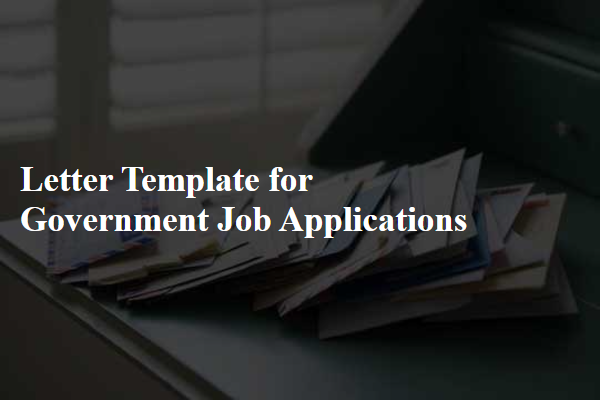
Personal Details
Personal details section of a government job application typically includes crucial information for identification and contact purposes. Essential elements include full name, usually formatted as First Name Middle Name Last Name; date of birth, which helps establish eligibility regarding age requirements for certain positions; address, including street number, city, state, and postal code for potential correspondence; phone number, providing a primary contact option; and email address, offering a rapid means of communication. Additionally, including citizenship status, such as U.S. citizen or permanent resident, is often necessary for compliance with federal employment regulations. Other relevant information may contain social security number, although sensitive and should only be shared as per application instructions.
Job Reference and Title
When applying for a government job, the job reference and title should be clearly indicated at the top of the application. The job reference number, assigned by the governmental agency, is crucial for tracking your application within the recruitment system. For example, the reference number could look like "REF12345" and should be exactly as stated in the job announcement. The job title, such as "Administrative Officer" or "Public Health Analyst," provides clarity about the specific position being applied for and ensures that your application is directed to the correct hiring department. Including both details accurately can significantly enhance the chances of a successful application process.
Introduction and Objective
A government job application typically begins with an introduction that outlines the applicant's intent and qualifications for the specific position. The objective should clearly articulate the applicant's career goals and how they align with the government's mission. For instance, an individual might emphasize their commitment to public service, demonstrating experience in policy development or community engagement. Additionally, mentioning relevant skills such as project management or communication proficiency can strengthen the application. This concise overview sets the tone, revealing the applicant's passion for contributing to governmental operations and serving the community effectively.
Relevant Experience and Skills
Relevant experience in public service roles shows a strong commitment to community improvement. Positions held in local governance (such as city council or municipal departments) illustrate the ability to navigate bureaucratic processes and work collaboratively with diverse stakeholders. Skills in project management, demonstrated through coordinating initiatives that improved community resources or infrastructure, showcase organizational capabilities. Proficiency in data analysis tools, like Excel and GIS software, enhances the ability to assess community needs effectively. Strong communication abilities, evidenced by public speaking engagements at town hall meetings or community forums, enable clear information dissemination. Knowledge of policy implementation and regulatory compliance, gained through internships with government agencies, supports a thorough understanding of legal frameworks guiding public service.
Closing Remarks and Contact Information
In professional government job applications, closing remarks serve as a final opportunity to express enthusiasm for the position and gratitude for consideration. A concise summary can reinforce qualifications and readiness to contribute effectively to the agency's objectives. It's important to provide clear contact information, including the primary phone number for direct communication and an updated email address, ensuring hiring officials can reach candidates easily for follow-up discussions. Including relevant social media handles, such as LinkedIn profiles, can further demonstrate professionalism and networking capabilities.

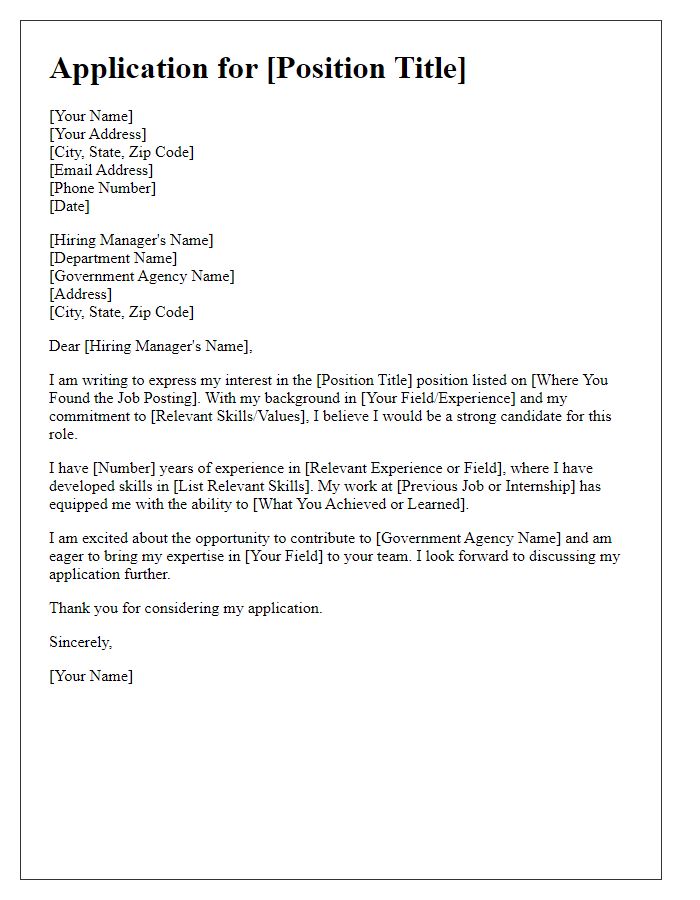
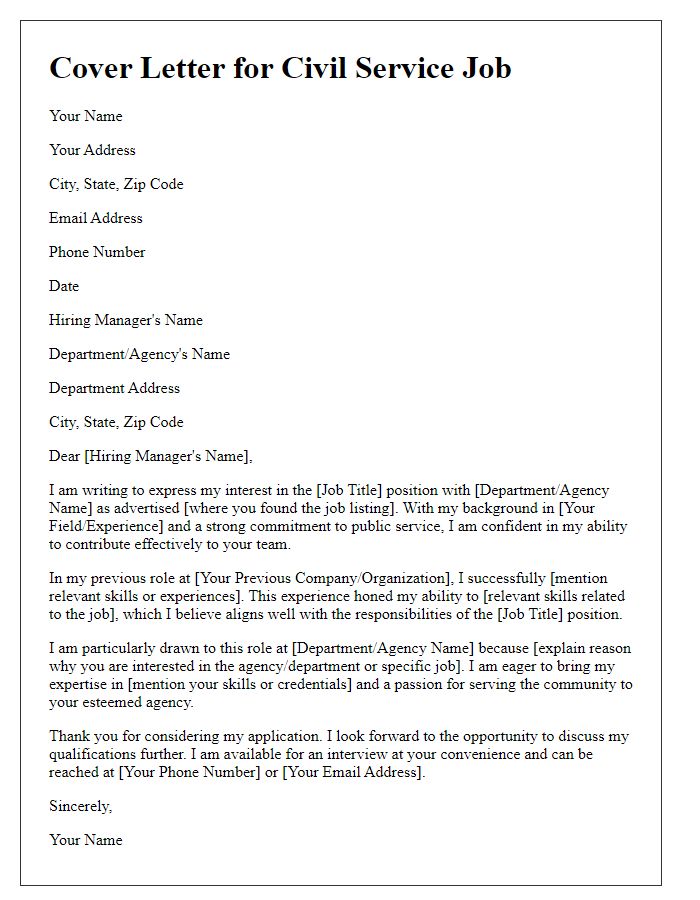
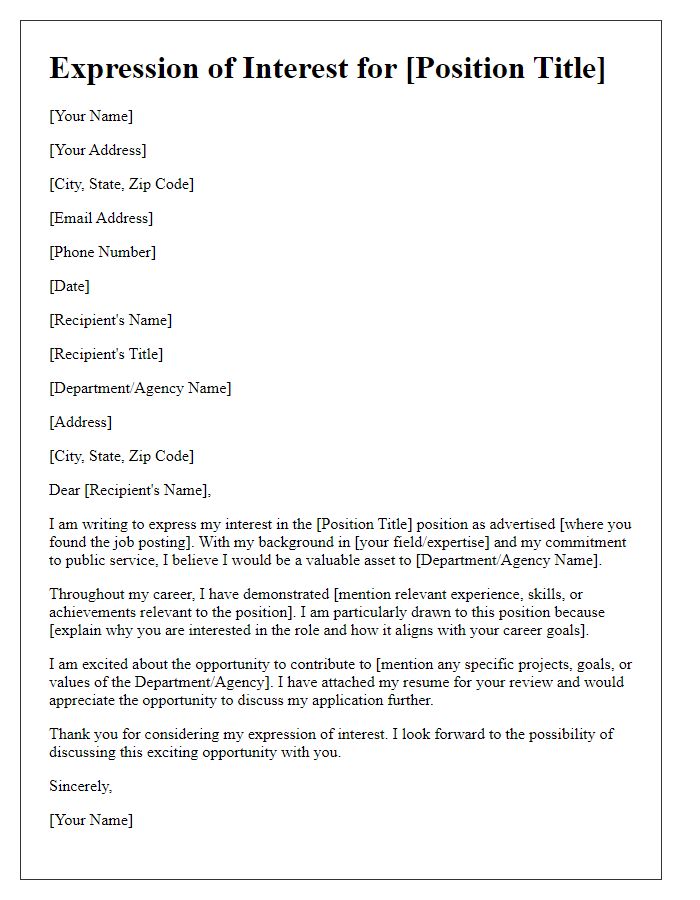
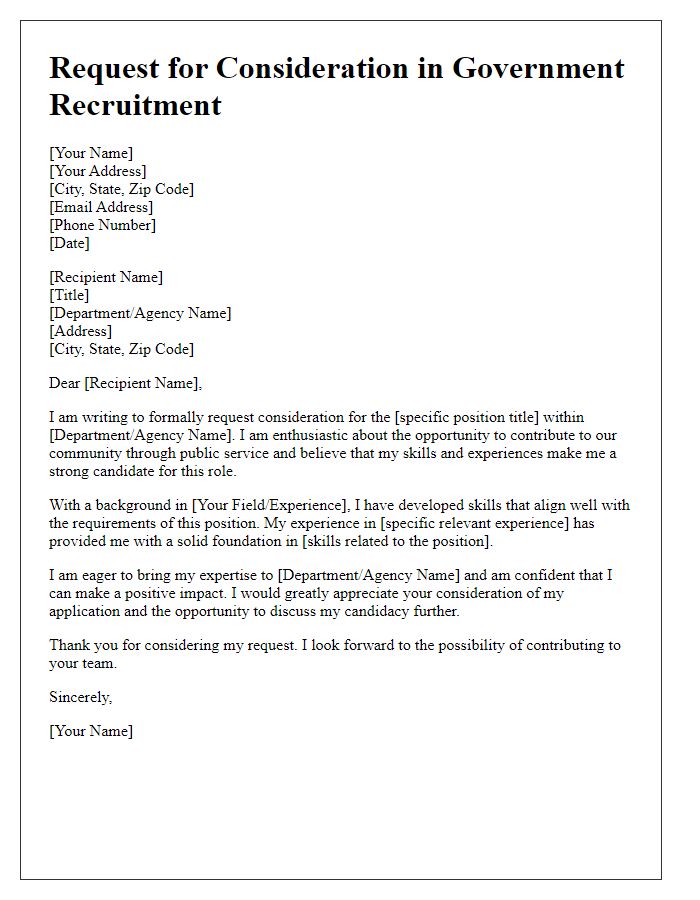
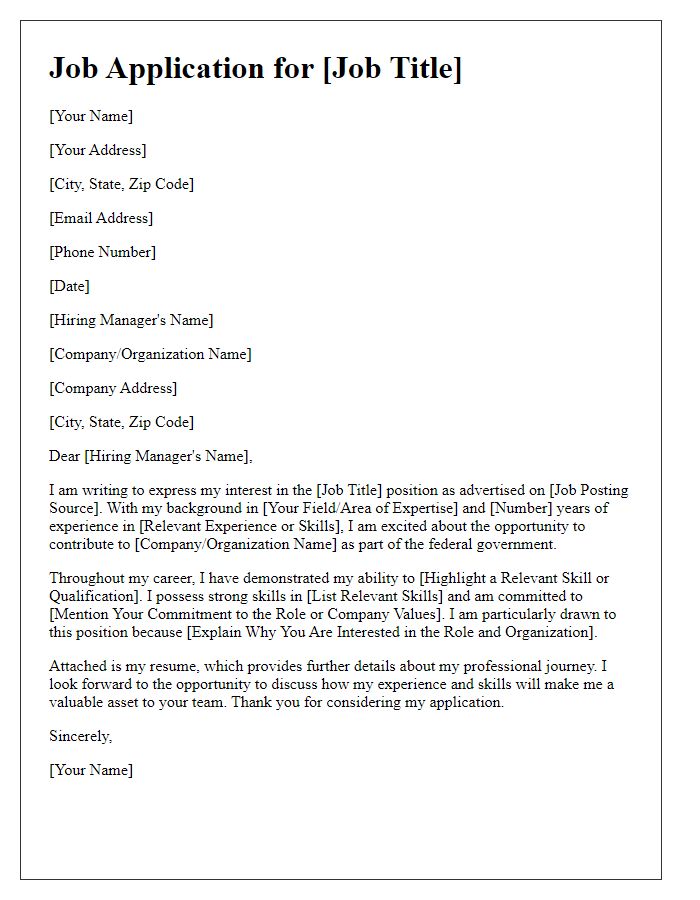
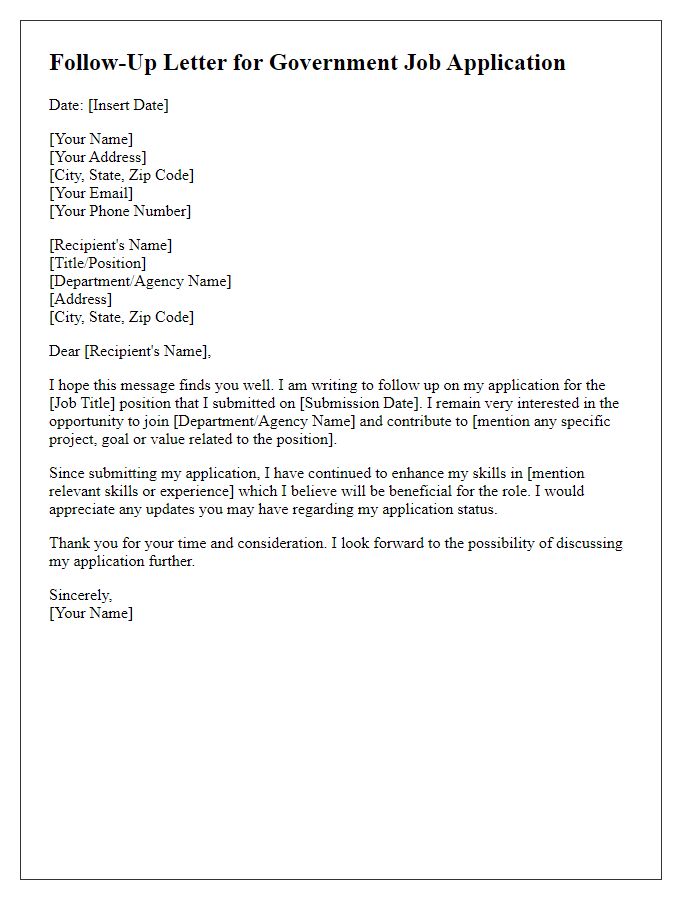
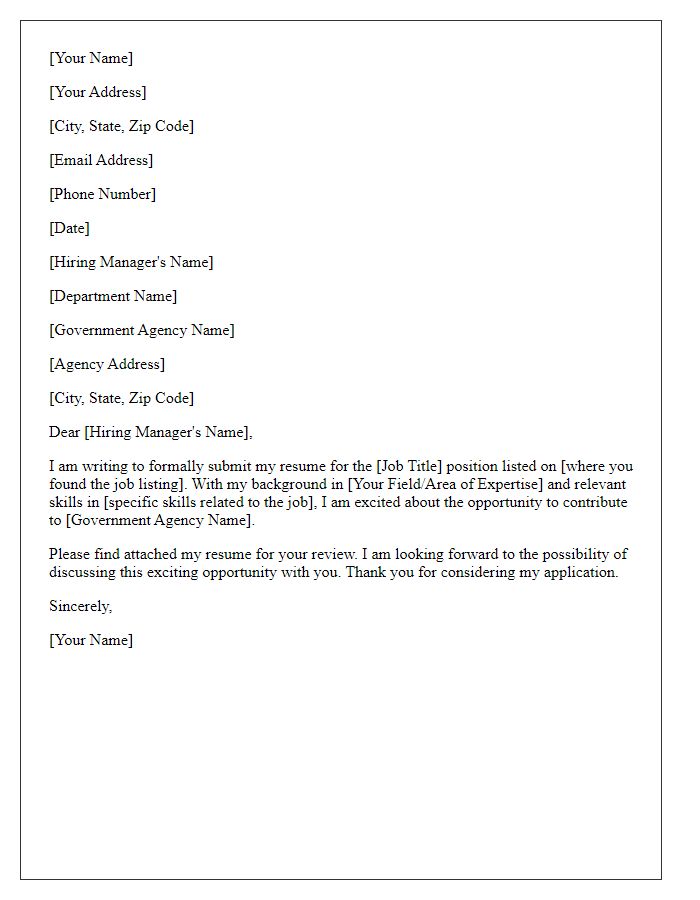
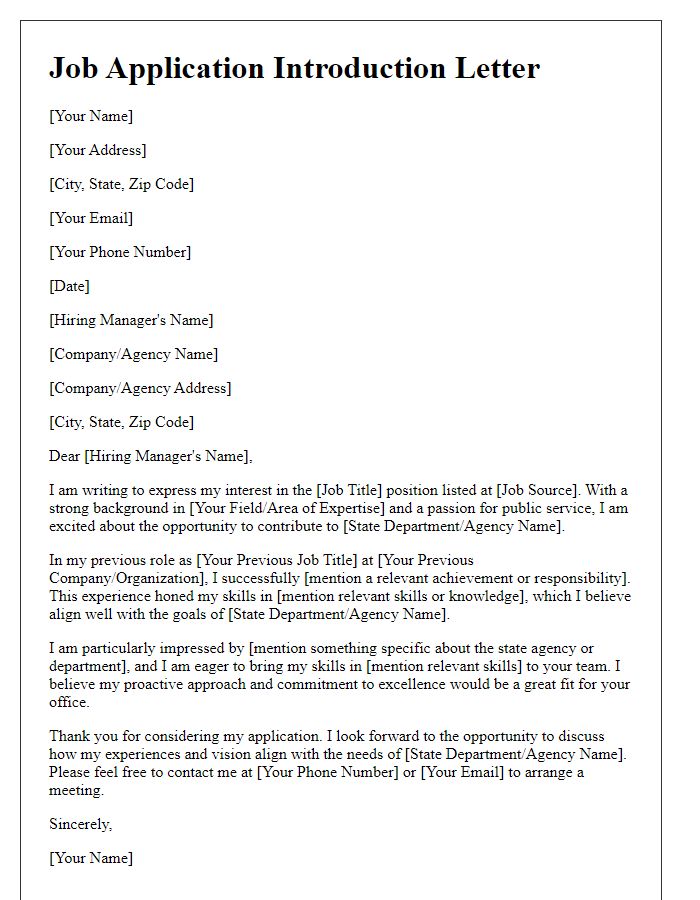
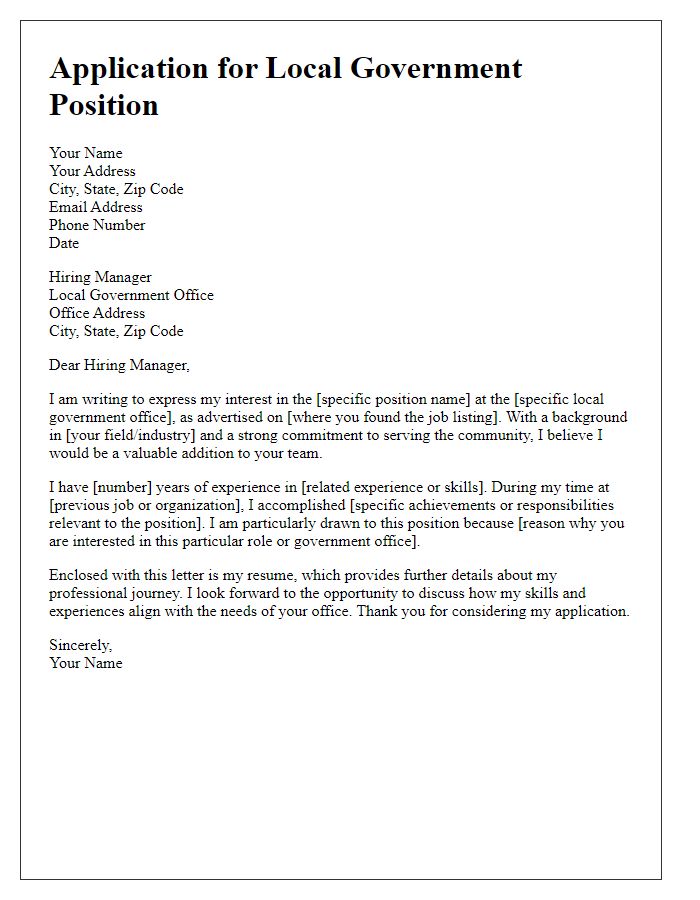
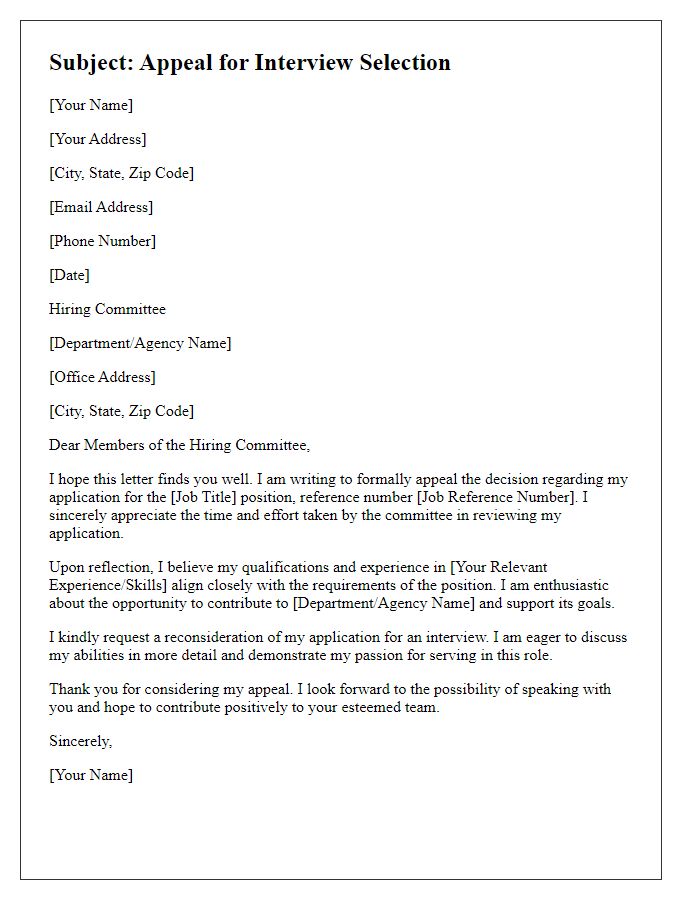


Comments